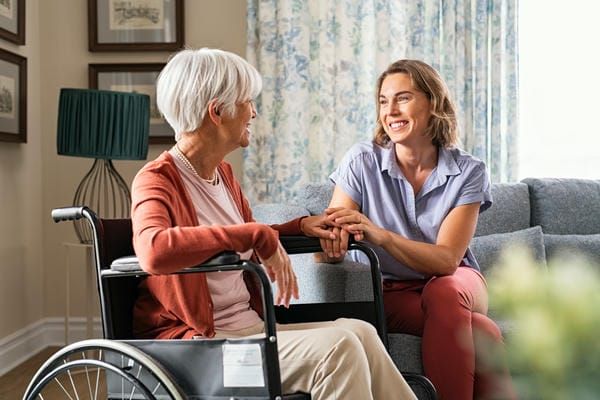Caregivers play a pivotal role in providing holistic health care to older adults, ensuring that all aspects of their well-being are addressed. A holistic approach to caregiving focuses not just on the physical needs but also on the mental, emotional, and spiritual health of the person receiving care. Here’s how caregivers can effectively support holistic health care:
Physical Health care
1. Nutrition and Diet:
- Meal Preparation: Caregivers can prepare balanced and nutritious meals tailored to the dietary needs of the older adult. This includes incorporating fresh fruits, vegetables, whole grains, and lean proteins.
- Hydration: Ensuring the individual stays hydrated is crucial, especially as older adults are prone to dehydration.
2. Exercise and Mobility:
- Encouraging Physical Activity: Caregivers can encourage regular physical activity, such as walking, stretching, yoga, or tai chi, to maintain strength, flexibility, and overall health.
- Safety and Mobility: Helping with mobility aids and ensuring a safe environment to prevent falls and injuries.
3. Medical Care:
- Medication Management: Keeping track of medications, ensuring they are taken correctly, and monitoring for side effects.
- Healthcare Coordination: Scheduling and accompanying the older adult to medical appointments, communicating with healthcare providers, and ensuring that the care plan is followed.
Mental Health care
1. Cognitive Stimulation:
- Engaging Activities: Providing activities that stimulate the mind, such as puzzles, reading, arts and crafts, and games.
- Learning Opportunities: Encouraging lifelong learning through new hobbies or educational programs.
2. Emotional Support:
- Listening and Communication: Being a compassionate listener and providing emotional support to help manage stress, anxiety, and depression.
- Social Interaction: Facilitating social connections with family, friends, and community groups to combat loneliness and isolation.
Emotional Health care
1. Creating a Positive Environment:
- Companionship: Offering companionship and building a trusting relationship.
- Emotional Expression: Encouraging the older adult to express their feelings and providing comfort and reassurance.
2. Therapeutic Activities:
- Art and Music Therapy: Utilizing creative therapies to enhance mood and emotional well-being.
- Pet Therapy: If appropriate, involving pets can provide joy and reduce stress.
Spiritual Health
1. Spiritual Practices:
- Religious Services: Assisting the older adult in attending religious services or spiritual gatherings.
- Meditation and Reflection: Encouraging practices such as meditation, prayer, or reflection to foster inner peace.
2. Meaning and Purpose:
- Life Review: Helping the individual reflect on their life experiences and achievements, which can provide a sense of meaning and fulfillment.
- Goal Setting: Assisting in setting personal goals and finding activities that give the older adult a sense of purpose.
Social Health care
1. Community Involvement:
- Social Activities: Encouraging participation in community events, clubs, or group activities that interest the older adult.
- Volunteer Opportunities: Finding opportunities for the individual to contribute to their community, if they are able and willing.
2. Family Connections:
- Family Visits: Facilitating regular visits and communication with family members.
- Family Care Plan Meetings: Involving family members in care planning and decision-making processes.
Integrating Holistic Practices
Caregiver in Holistic Health Care can integrate holistic practices by:
- Personalized Care Plans: Developing care plans that are tailored to the individual’s unique needs and preferences.
- Ongoing Education: Continuously learning about holistic health practices and incorporating them into daily care routines.
- Collaborative Approach: Working with other healthcare professionals to provide comprehensive and coordinated care.
By embracing a holistic health care approach, caregivers can significantly enhance the well-being and quality of life of the older adults they care for, addressing not just their physical needs but also supporting their mental, emotional, spiritual, and social health.













